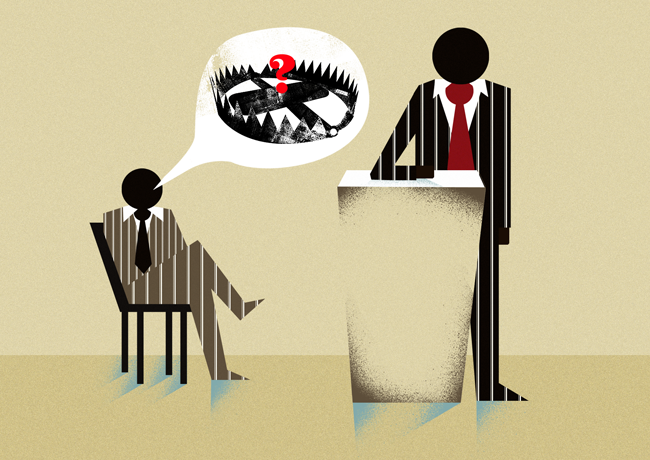Spicy chili, chopped onions or just covered in French’s classic, we have all been handed one during a public speaking event, seminar or workshop input session at one time or another.
“I don’t get it” for the 3rd time, crossed arms, and I guess waiting for me to spend another 7 minutes of everyone’s time trying to justify the new workflow model we were presenting to the group.
Going up to his seat, “Thanks for the input A-san, when you have had a chance to clarify what you don’t understand, I’d be happy to readdress your question, thank you.”
This is an example of what I have coined as “whiner management”.
A “whiner” is a delegate with a habit of inappropriate snide comments, unnecessary challenges, “questions” that are just negative statements, loud sighs and groans aimed at one thing, attacking the speaker, facilitator or presenter to damage their credibility or show the group they don’t want to be there.
This habit needs requires "weening" to change and thus "whine" is pronounced like a double "ee"
Delegates who challenge arguments, make comments based on listening, ask questions in an effort to learn and debate, are NOT whiners, they are always welcome.
Having a genuine disagreement with the speaker based on content or delivery method is acceptable, simply trying to trip them up or ruin the experience for everyone else, is not.
Whiners create adverse atmospheres and cause most professionals to avoid speaking, leading presentations, fearing the experience of being boiled in public.
When running workshops, presenting or doing public speaking, you may want to consider the following as part of your whiner management condiment tray.
Know your whiner:
Whiners are basically insecure people who attack facilitators & presenters to make themselves feel better. They don’t think anyone can teach them anything and instead of listening, they seek to spoil the learning opportunity for everyone to take the pressure off of them.
As in life, there are many types of whiners, below are a few types that I have experienced here locally.
“Oswaldo” - These grassy knoll enthusiasts will sit back and ignore most of the contents covered, only to pop up and take sniper shots at any “in-consistency” in your message. They don’t take notes or notice examples, but rather glance at materials and wait for their chance to trip you up.
“Clifford” - “Nope, I know everything and I’m only here because I have to be”. No need to learn anything, know everything and can’t benefit from listening.
“Murmurs” - Always talking to their desk-partner but never having anything to say. This droning can keep you off your game and distract your group.
Engage your whiner:
For Oswaldos, ask them to clarify themselves and how the comments apply to the topic at hand, usually they don’t and the sudden attention will have them drop their rifles.
For Cliff the postman at the bar, who knows everything, ask them occasionally for a specific opinion that directly applies to the discussion topic, being careful not to let them take over.
I have converted these people to be great assets during long training sessions as sometimes, they just want to be recognized as experienced, give them that chance.
For the general murmuring, cut the whiner duo in half by asking questions to the one doing the listening, waiting silently for an answer you know they won’t be able to give.
This embarrassment will either bring them into the discussion or at least keep them quiet so others can benefit from the learning.
Control your whiner:
No matter how senior-the-whiner, do not allow them to run-or-ruin your workshop despite nerves or how inexperienced you feel.
You need to believe in yourself that you have a valuable message to share.
Your mustard can be sweet or spicy, you decide which is best at the time to use.
Use your whiner:
Whiners are great to use in preparation for speaking of workshops.
Imagine what a “Oswaldo” would say, if you try delivering this model without clearly showing it is a case by case tool.
Do you have enough case studies or users feedback to back up claims made? Cliff the postman may ask for it, are you ready?
Have you created enough engaging content as to keep delegates from wanting to chat the time away?
Do you seek participant feedback in real time?
Avoid whiner over-fixation:
In the end, it’s your workshop, not their hotdog stand.
You are there to help delegates learn, share ideas and challenge beliefs that may be holding them back.
Though difficult to do in the “boiling pot” of the moment, controlling your whiners is key to developing true confidence and delivering real value to your delegates.
Other posts by Jason de Luca:







